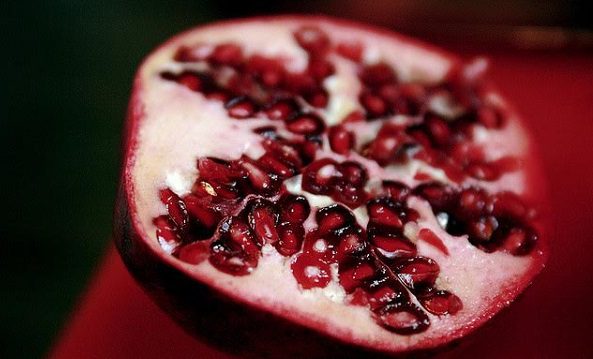
This is Day One of Altmuslim’s #30Days30Writers series for Ramadan, 2015.
By Rahim Snow
Ramadan is the month when many Muslims practice fasting from sunrise to sunset. But what exactly does restraining ourselves from eating food have to do with our devotion to God? Let’s explore this through a few stories.
There is a tradition in myth and fairy stories — well-known to the fairies but less known to their human visitors — that says, “Never eat the food of the fairy world because it will trap you there and keep you from going back home.”
In Greek mythology, Persephone is kidnapped and taken to the underworld by Hades. Zeus commands him to release her, but Hades tricks her into eating a pomegranate before she leaves. Since she has eaten the fruit of the underworld, she is forced to spend a part of the year there with her kidnapper.
In the Japanese animated movie Spirited Away, a young girl named Chihiro and her parents are trying to get home, but they get lost and find themselves in the fairy realm. Her parents eat the food of that world and are transformed into pigs. They forget who they are or where they come from, so Chihiro has to find a way to save them.
These myth and fairy stories contain an insight we want to explore: We are bound to the world whose food we eat. Even the creation story in the Quran, which closely mirrors the one in the Bible, illustrates this insight.
God creates Adam and Eve and puts them in a garden where they have all they need without any effort on their part. They are told to eat whatever they like except the fruit of the forbidden tree. But they eat it anyway, and it changes them. Why? Even though the forbidden tree stands in the garden, it actually comes from the earth.
Now that they have earthly fruit in their bodies, making its way into their hearts and minds, it transforms them from the people of the garden to the people of the earth. That’s why they are told to descend to the earth, where they will have to work for every little thing they want. Like Persephone and Chihiro’s parents, they are now bound to the world whose food they have eaten.
The fruit of the forbidden tree brings division into every aspect of their lives. It divides them from God’s good graces, from their place in the garden, from each other and from their own true identities. But their story doesn’t end there. God’s mercy moves toward them and gives them his sacred words so they can overcome the poison of the forbidden fruit and return to their proper relationship with God.
Since we are the children of Adam and Eve, the forbidden fruit also brings division into our lives. Distrust, conflict and war keep our bodies heavy, our minds hazy, our hearts hard and our will divided. But like our ancestors, our story doesn’t end here either. Over a thousand years ago, in the month of Ramadan, God’s mercy gave his sacred words again in the form of the Quran. We can use its words to heal the divisions in us and bring together what was once torn apart.
During this month, God asks us to stop eating the food that binds us to the earth so that ancient memories of a larger life and identity might stir again. Instead of tasting bread, God asks us to taste his names in our mouths and draw nourishment from them. After all, we are not just bodies that need bread to survive; we are beings from God who need his sacred words to thrive.
Our task is not to fast for the sake of rewards. Our task is to use fasting to break the hypnotic spell that eating the forbidden fruit has cast over us. If eating too much makes us feel heavy, sleepy, forgetful and numb, then restraining ourselves from eating for a time and replacing our meals with prayers can make us feel light, alert, mindful, and alive.
The intensity of our remembrance of God, the endurance of hunger, the tolerance of thirst, the scorching fire that is the meaning of Ramadan — all this can dislodge the pieces of the forbidden fruit in us and burn it away.
So if we demonstrate that we much prefer the sacred words of God over bread, then the world we are binding ourselves to is neither heaven nor earth, but God himself. Is this not what we’re all looking for? Is He not our everything? This is what connects our fasting from food to our devotion to God.
May the blessings of God be upon you and your families on this Ramadan.
Rahim Snow is a writer, a teacher and a designer exploring the intersection between religious studies, literature, theology, psychology, software engineering, and design in all of its aspects. He is the author of the forthcoming book, Remember Who You Are, introducing the core spirituality of Islam in 28 verses. Learn more about his work here. Follow Rahim on Twitter @RahimSnow.











